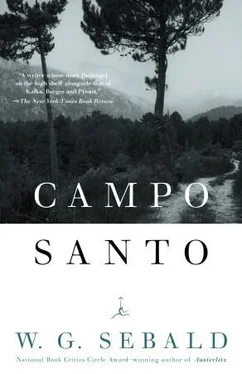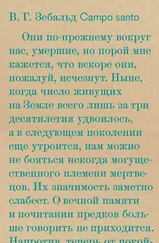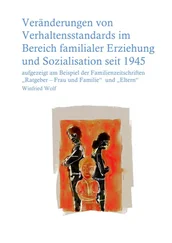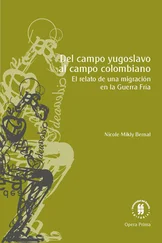Among those moments musicaux which were accompanied by a first shadow cast over the feelings and which I have never been able to put out of my mind is, as it happens, a silent scene. In the single-story annex of the half-ruined railway station of S., which was closed down after the war, Zobel the conductor of the choir gave music lessons twice a week late in the afternoon. Especially in the winter months, when everything around was already dark, I would often stop outside what had once been the little waiting room on my way home to watch the music master in the bright lamplight inside, a thin and rather crooked figure conducting the muted music that I could hardly hear through the double window, or bending over the shoulder of one of his pupils. Among them were two to whom I felt particularly drawn: Regina Tobler, who tilted her head so prettily against her viola as she played that I felt a strange tugging in the region of the heart, and Peter Buchner, moving his bow back and forth over the strings of his double bass with an expression of utter bliss. Peter, who was so long-sighted that he had to wear glasses which made his moss-colored eyes look at least twice as large as they really were, wore the same buckskin breeches and green jacket all the year round. Since he had no proper case for his instrument, which was much mended with sticking plaster, and anyway he could not have carried such a case from the Tannach housing project, where he lived, to the middle of town, he tied his double bass, usually covered with a piece of flower-patterned oilcloth, to a little handcart with string, and fixed the axle of the cart to his bicycle carrier, so that Peter was to be seen several times a week before or after the evening music lesson cycling from the Tannach project to the old railway station, or back from the old station to the Tannach project, sitting curiously upright on the saddle, his Tyrolean hat worn sideways on his head and his rucksack over his shoulder with the bow of the double bass sticking out of it, pulling the rattling little handcart along behind him either up or down Grüntenstrasse.
Zobel, the music teacher and conductor of the choir, was also organist of the parish church of St. Michael, from which he barely escaped with his life on Sunday, April 29, 1945, when the tower suffered a direct hit during high mass. For an hour, I was told, the music master wandered around among the bombs that were still exploding everywhere in the lower part of town, and the falling buildings, until just as the all-clear sounded he entered the sickroom where his wife had been lying for months; he was covered from head to foot with plaster dust and looked like the specter of the catastrophe that had befallen S.
A good decade later — the bells had long ago been hung in the rebuilt tower again — I always climbed to the loft during mass on Sunday to watch the music master playing the organ. As I remember, he once remarked to me there was something wrong with the singing of the congregation assembled down in the nave, and said you could always pick out the people who sang out of tune from all the others. Easily the loudest of the untuneful singers was a certain Adam Herz, said to be a runaway monk, who made a living as a cowman on his uncle Anselm’s farm.
Every Sunday, Adam Herz stood on the extreme right of the back row of pews, and thus beside the steps up to the organ loft, where the enclosure in which for centuries lepers were penned during divine service used to stand. With the fervor of a man driven mad by a terrible grief of the soul, Herz bawled out the Catholic hymns, all of which he knew by heart. His face was turned up and wore an expression of torment; his chin was thrust forward and his eyes were closed. Summer and winter alike, he wore a sturdy pair of hobnailed boots on his bare feet and a pair of working trousers that were covered with cow manure and scarcely reached his ankles, and even in the iciest weather neither shirt nor vest, but only an old overcoat, his bony chest covered with curly gray hair visible between its lapels, as it strikes me today just like poor Barnabas’s chest under his messenger’s suit in The Castle .
The music master, who played the accompaniment to the usual couple of dozen hymns loudly sung by the congregation more or less half asleep, came back to his proper senses again only at the end of Mass, when he virtually swept the herd of the faithful out of the church door with the storm of music he unleashed in his improvisations on the organ. As he played there in the church, which was soon empty and thus twice as resonant, performing variations in the boldest, indeed most reckless manner on a theme from Haydn’s Creation , a symphony of Bruckner or another of his favorite works, his slightly built upper body moved back and forth like a metronome, and his bright patent-leather shoes seemed to me to dance a positive pas de deux on the pedals, independently of the rest of him. He pulled out stop after stop, until the waves of sound coming from the organ pipes threatened, as I sometimes feared, to bring down the structure of the world itself, and he reached the climax in a last extreme crashing of chords, whereupon the music master suddenly broke off with a curious rigidity that involuntarily came over him at that moment, listening for a little longer to the silence flooding back into the trembling air, with a happy expression on his face.
If you went from the parish church up the former Ritter-von-Epp-Strasse toward the middle of the town of S. you passed the Ochsenwirt inn, where the Liedertafel, or singing society, met to perform every Saturday in the festive hall, which stood empty during the week. I remember that once, when everything was buried deep in snow, I was lured by the sounds, strange to me, coming from the Ochsenwirt into the soundless winter air, went into the hall, and there, all alone in the dim light, watched a rehearsal of the closing scene of the opera that, as I had already heard, was soon to be performed on the stage, which still dated from before the First World War and seemed to me miles away at that rehearsal.
I did not know what an opera was at the time, nor could I imagine what it might have to do with the three figures in costume and the shining dagger held first by Zweng the distiller and then by Gschwendtner the upholsterer, finally passing to the tobacconist Bella Unsinn, but I could tell from the despairing, intertwining voices that the scene unfolding before my eyes could only be a tragic one, even before Franz Gschwendtner took his own life, and Bella next moment sank unconscious to the ground.
And how surprised I was to see this tragic closing scene, which until then I had almost entirely forgotten, in a London cinema thirty years later, performed incredibly enough in almost identical costumes. Klaus Kinski, with his yellow hair standing out from his head as if electrified, stares out of the background of the stalls in the Teatro Amazonas of Manaus at the point when the action of the opera, set in the sixteenth century among Spanish grandees and mountain brigands, is just reaching the last of its many turns of fortune. Silva, wrapped in a black cloak, has handed the dagger to Hernani, played by Caruso in a kind of maternity smock. Hernani plunges it into his breast, rises heroically once more to the upper registers of song, and then falls sideways at the feet of the inconsolable Elvira, or rather Sarah Bernhardt, who shortly before, in an unprecedented bravura achievement, has come down the stone steps of the castle with her wooden leg.
Her face made up to look as white as a sheet, and clad in a rather shabby gray-blue lace dress, the actress looked exactly like Bella Unsinn thirty years earlier on the stage of the Ochsenwirt, while Enrico Caruso, who Fitzcarraldo believes pointed to him in the last moment of his life, looked with his broad-brimmed brigand’s hat, twirled mustache, and purple tights just like Gschwendtner the upholsterer as I remembered him.
Читать дальше












